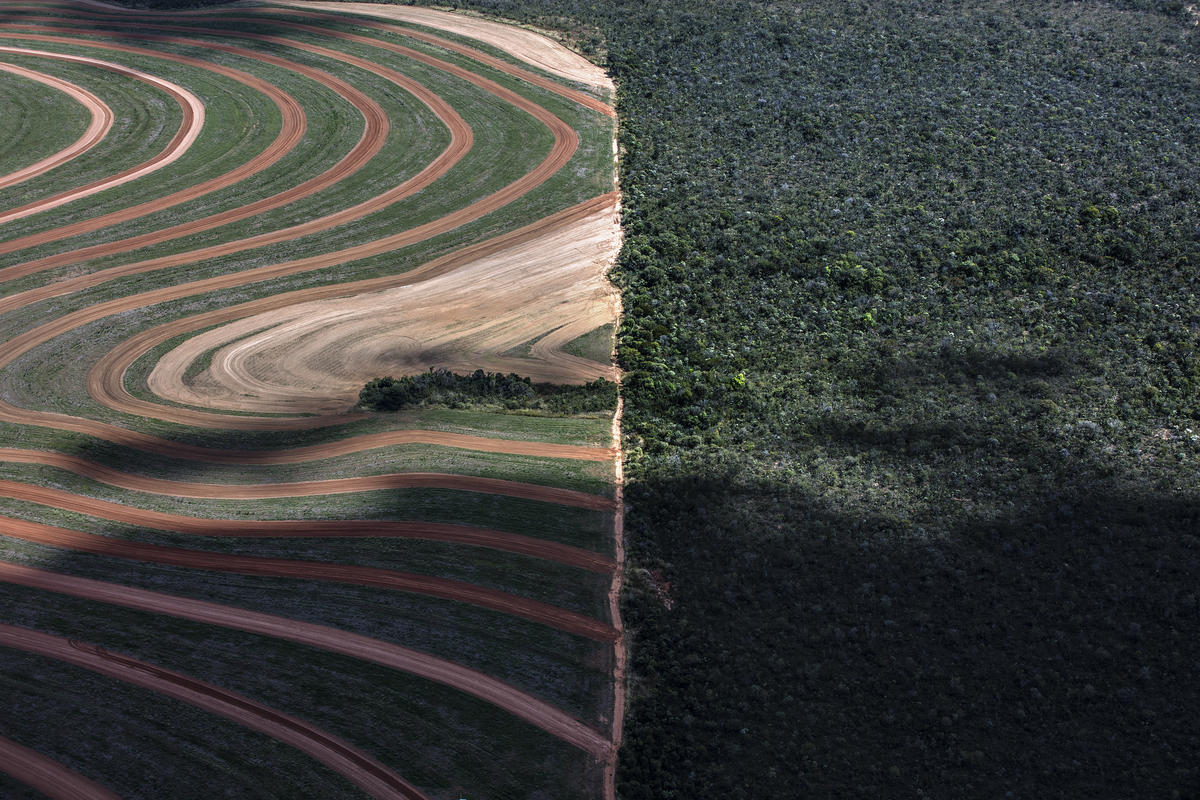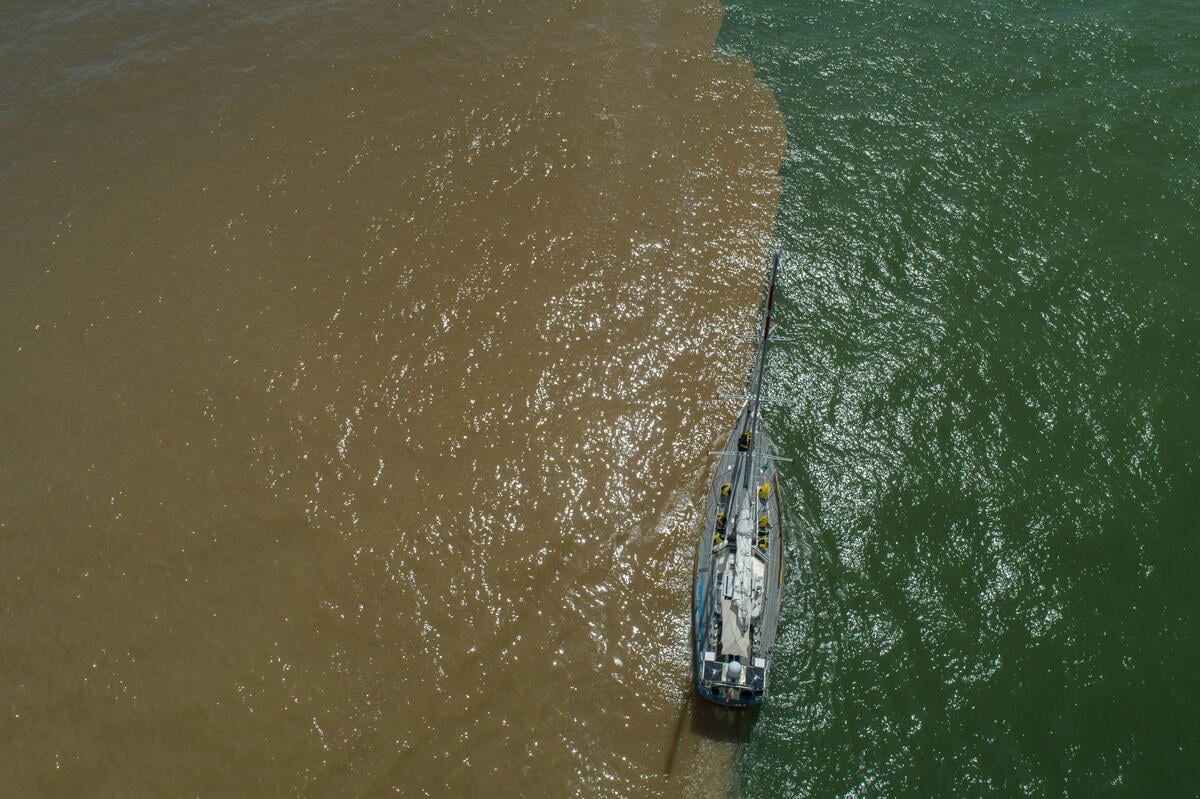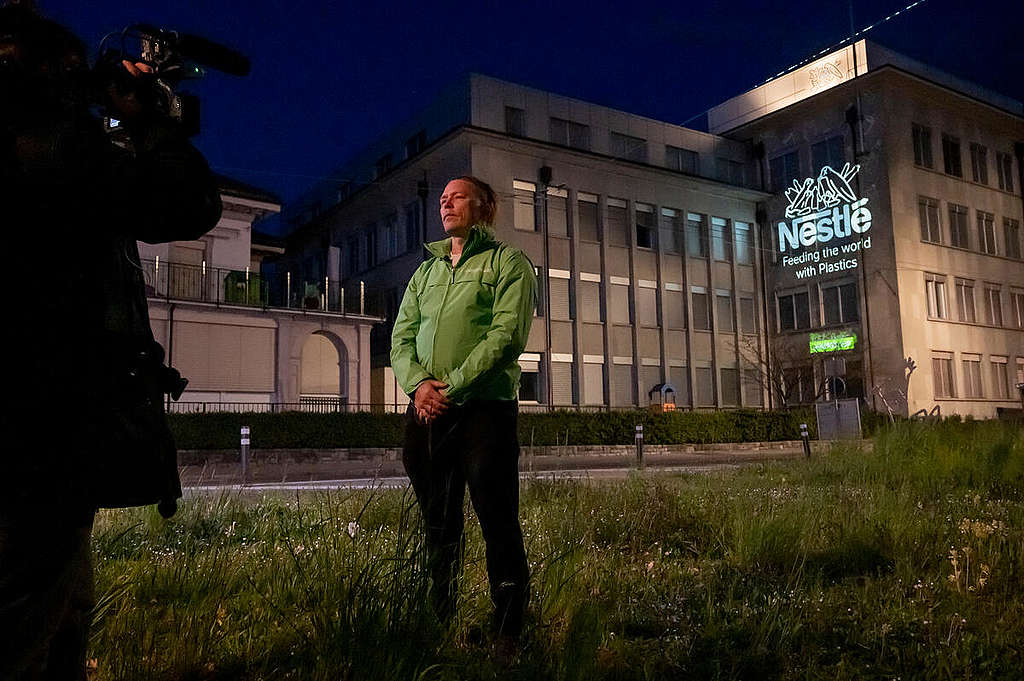
What’s happening
On the eve of Nestlé’s Annual General Meeting, Greenpeace Switzerland activists projected a series of messages and logos at the company’s headquarters, in Vevey. The images called out Nestlé for “feeding the world with plastic” and reminded the company it is a big part of the plastic and climate crises. Greenpeace has been campaigning against big brands like Nestlé globally to demand they reduce their single-use plastic packaging and invest in reusable systems.
Why it matters
Every year, Nestlé presents its annual financial results to its shareholders; celebrating gains which are often achieved at the expense of our environment and the climate. Despite a large number of media announcements in recent months, Nestlé’s record on eliminating throwaway plastic remains disastrous. In total. 1,300,000 tonnes of single-use plastic packaging were sold by the brand in 2020. Last December, the Break Free From Plastic movement identified the company as one of the world’s top three plastic polluters for the third year in a row.
And while Nestlé regularly talks big about reusables in their PR materials, the reality is that less than 1% of their packaging is actually reusable. And for a company that used a shocking 352 billion pieces of packaging in 2020 that adds up to a vast amount of waste and a big impact on the planet.
What is clear is that as plastic pollution continues to increase globally, Nestlé prefers to delude itself and mislead us by relying on plastic “recycling”, or by switching to other throwaway materials for its packaging, such as paper and cardboard. All of which have been found to harm our biodiversity and pollute our planet.
What is Greenpeace doing about it
“Nestlé must stop investing in false solutions and finally move towards reusable systems,” says Greenpeace Switzerland’s Campaigner Matthias Wüthrich.
This is why, yesterday, a few hours before the group’s Annual General Meeting, which was held virtually again this year due to the global pandemic, Greenpeace Switzerland activists gathered at the headquarters in Vevey to urge Nestlé to change its business model.
“Stop Single-Use, go Reuse”, “Nestlé, stop feeding the world with plastic” are some of the messages that illuminated the wall of the Vevey building.
A particularnew ingredient was also highlighted inadded to the visuals of some of the multinational’s brands: hydrocarbons to communicate that plastic is not only a waste problem, it is also a petroleum product whose production, use and disposal contribute to global warming.
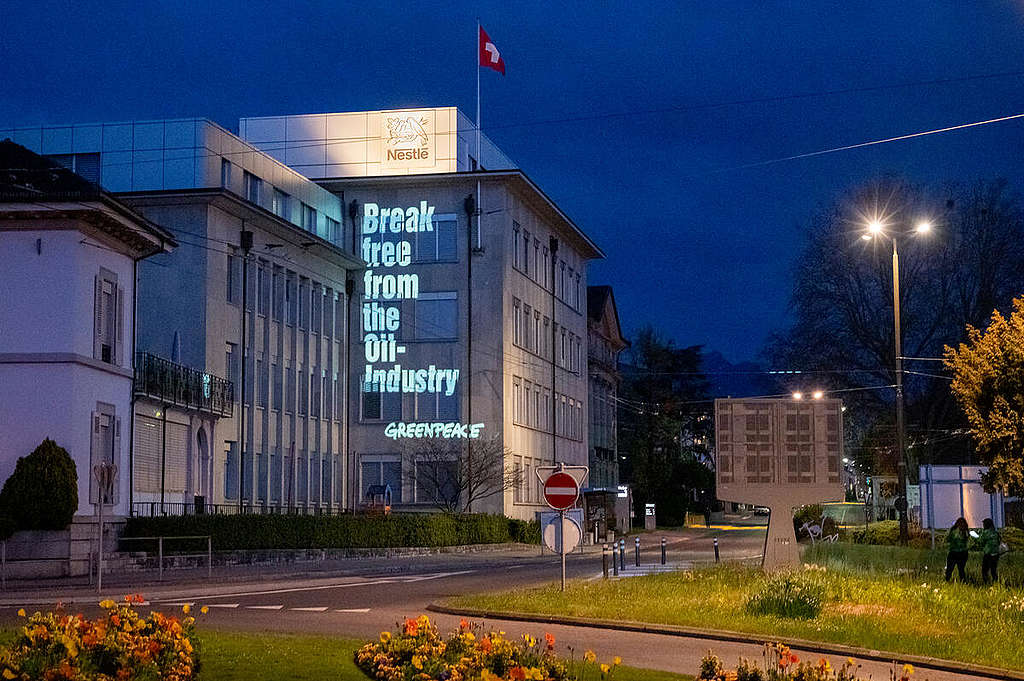
What needs to happen now
We need to stop the use of plastic at source and radically change the way consumer products are delivered to customers.
Real solutions to this problem exist and Nestlé needs to invest in them.
It needs to invest in refill and reuse.
“Without making a real commitment to reusable solutions, all Nestlé’s planned measures simply displace the problem and amount to greenwashing. Only a change of system from single-use to reusable packaging will save our planet from plastic pollution and protect our climate,” concluded Matthias Wüthrich.
Matthias Wüthrich is a Plastic Campaigner with Greenpeace Switzerland
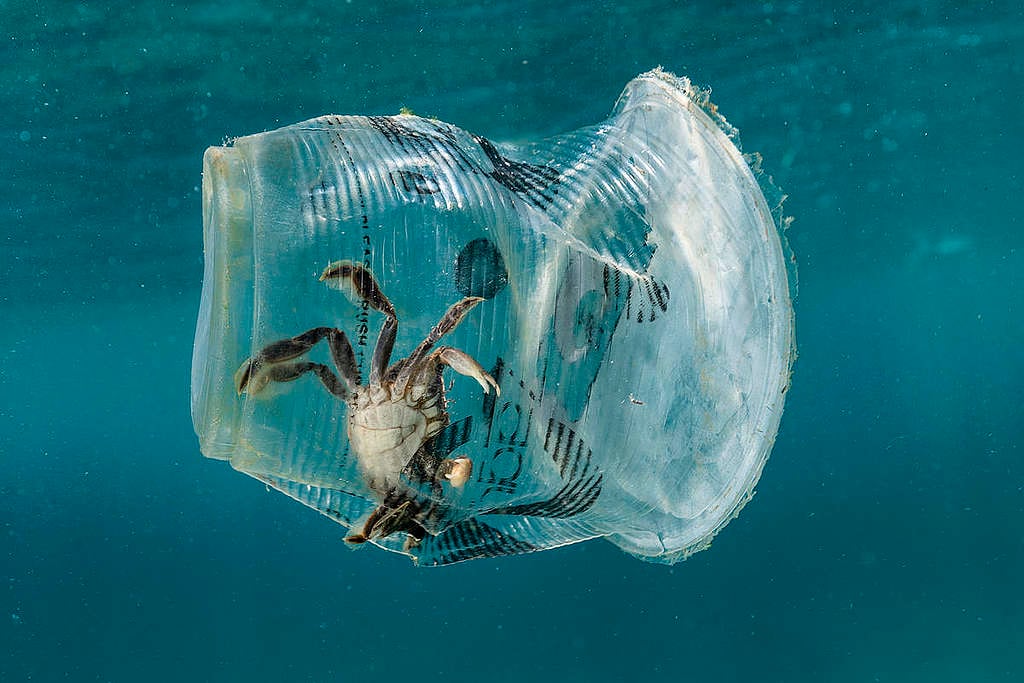
Ask world leaders to support a strong Global Plastic Treaty that addresses the whole life cycle of plastic.
Take action
